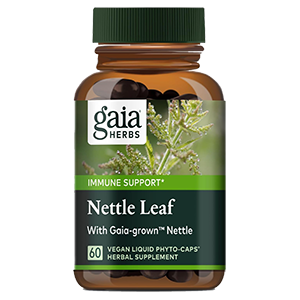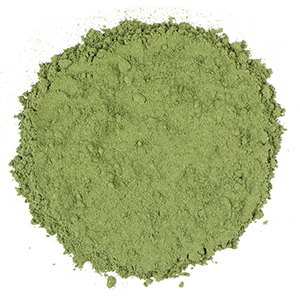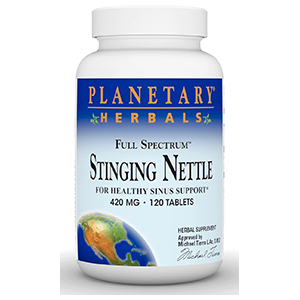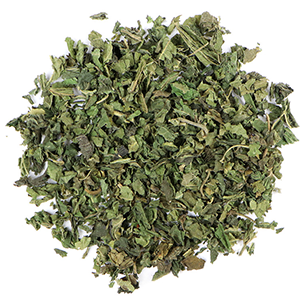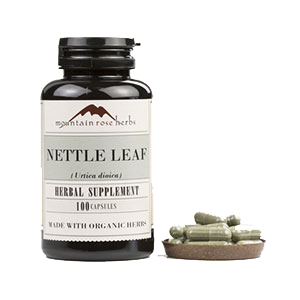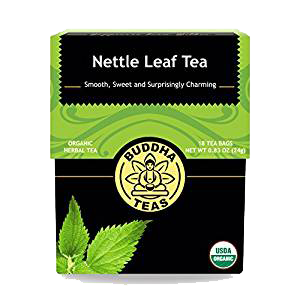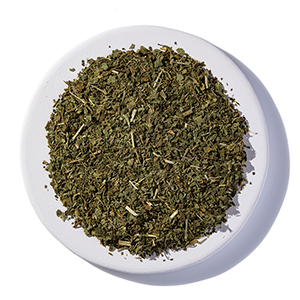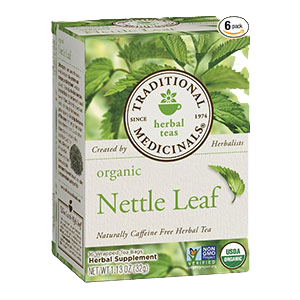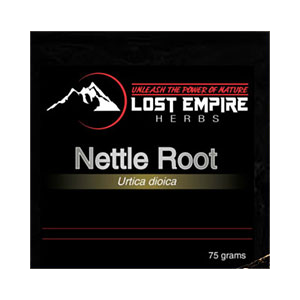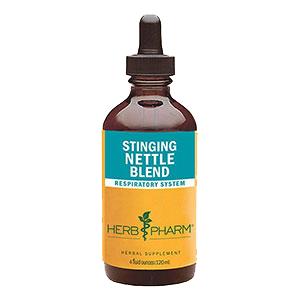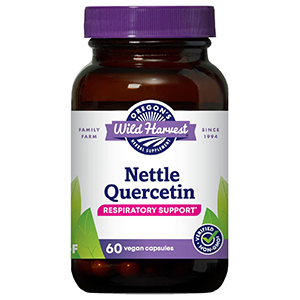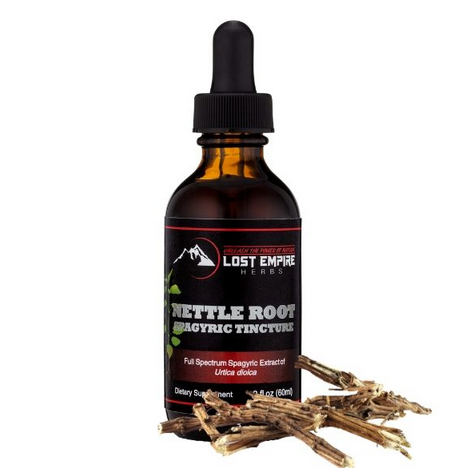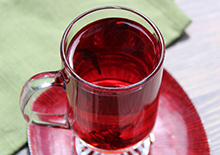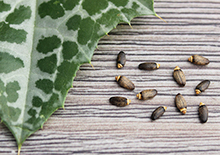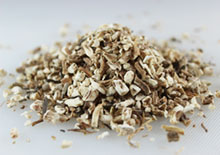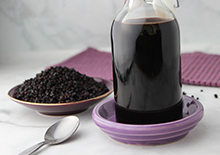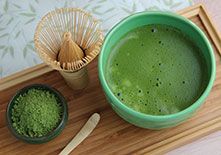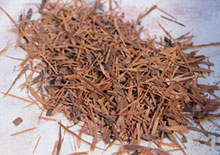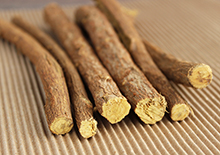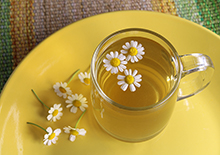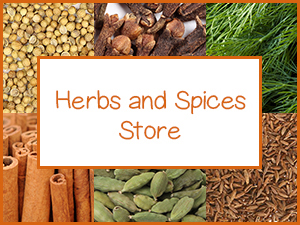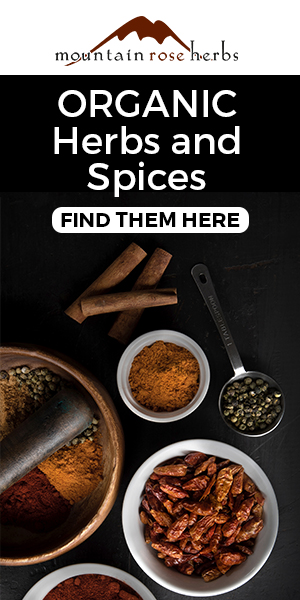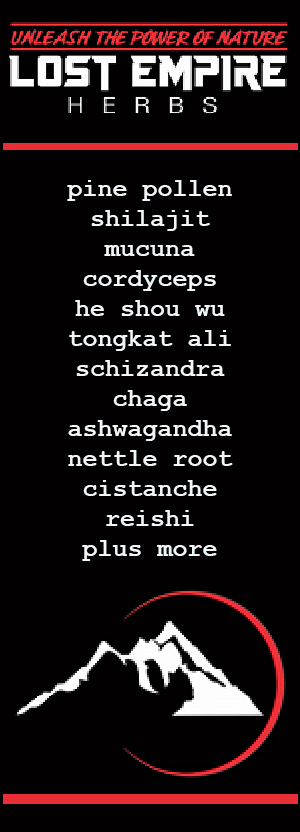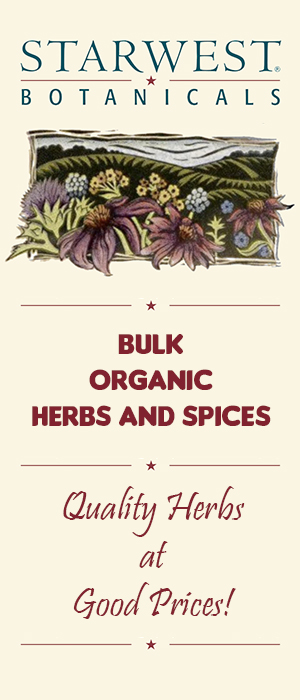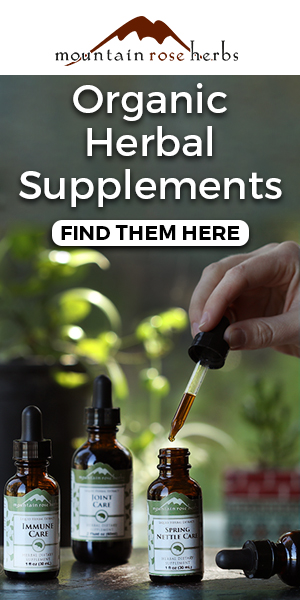- Home
- List of Herbs
- Virtues of Stinging Nettle
The 8 Virtues of Stinging Nettle
#1 Nutritive Tea | #2 Joint Pain | #3 Respiratory and Allergies | #4 Skin and Hair | #5 For Women | #6 Urinary System | #7 Nettle Root for Men | #8 Versatility | Precautions | Shop
Virtue #1) Nutritive Energizing Tea
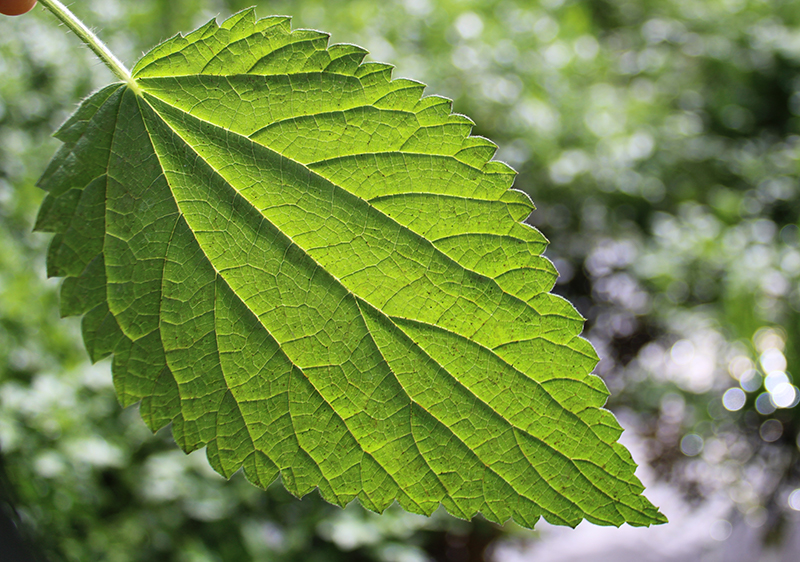
One of the great virtues of stinging nettle revered throughout the ages is its high concentration of nutrients. When nettle leaves are infused in hot water, they provide easily assimilated liquid nutrition.
Dark olive-green nettle tea has a strong vegetal flavor because it's full of vitamins and minerals, especially iron, calcium, magnesium, phosphorus, potassium, vitamin C, vitamin K and some B vitamins.
Table of Contents
#1 Nutritive Tea | #2 Joint Pain | #3 Respiratory and Allergies | #4 Skin and Hair | #5 For Women | #6 Urinary System | #7 Nettle Root for Men | #8 Versatility | Precautions | Shop
Tea infusions, using either fresh or dried leaves, are therefore potent vitamineral broths and great to have on hand for adding to soups or blended smoothies for extra sustenance.
Their nourishing attributes can subsequently have an energizing influence that's especially suitable for malnourished, weak or anemic individuals.
Nettle leaves are also found to contain many phenolic compounds, carotenoids, like lutein, beta-carotene, as well as chlorophyll. They are likewise a source of ALA omega-3's and protein, containing all of the essential amino acids.
Nettle powders or extracts also make convenient options if you're not necessarily a tea drinker.
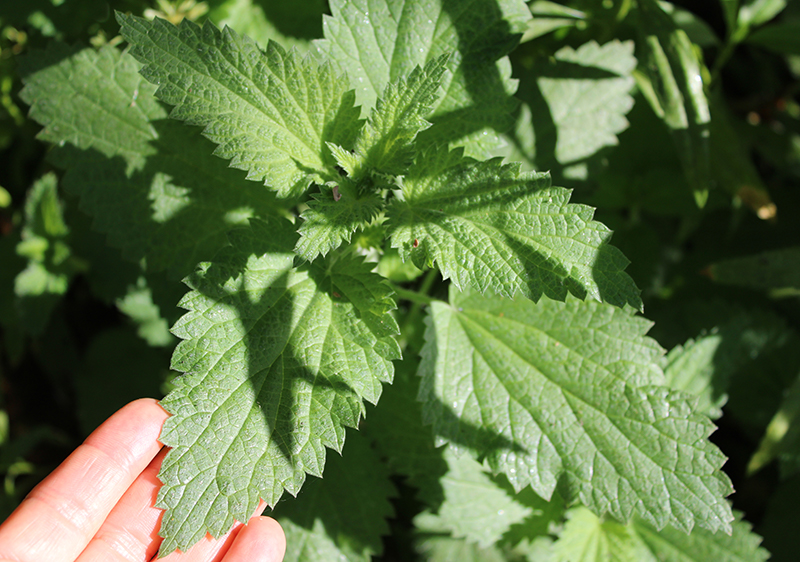
Virtue #2) Anti-Inflammatory for Joint Pain
Not only is nettle considered nutritionally fortifying for the bones and connective tissue, but was often regarded in the old days as a useful natural remedy for painful joints and conditions like arthritis and rheumatism.
Stinging nettle, also called common nettle, or Urtica dioica, grows wild in many temperate climates around the world. Most species are known for their powerful stinging hairs which cover the leaves and stems.
When they puncture human skin, they produce a temporary tingling and slight burning sensation with a bumpy rash that can last for several hours or more.

Nettles have a long-storied past in European herbalism and, interestingly, the nettle sting itself was once utilized in the age-old practice called "urtication" or flogging with nettles to alleviate chronic joint pain.
Additionally, the tradition of drinking home-brewed "nettle beer" was also once used for such analgesic purposes. (*)
Today, some science reveals that nettle extracts using the leaves, roots and stems might
provide stronger anti-inflammatory properties for things like osteoarthritis than
tinctures or tea infusions.
Nettle leaves, along with bamboo and horsetail, are also a source of SILICA (silicon), a mineral especially advantageous for joint and cartilage strength and repair.
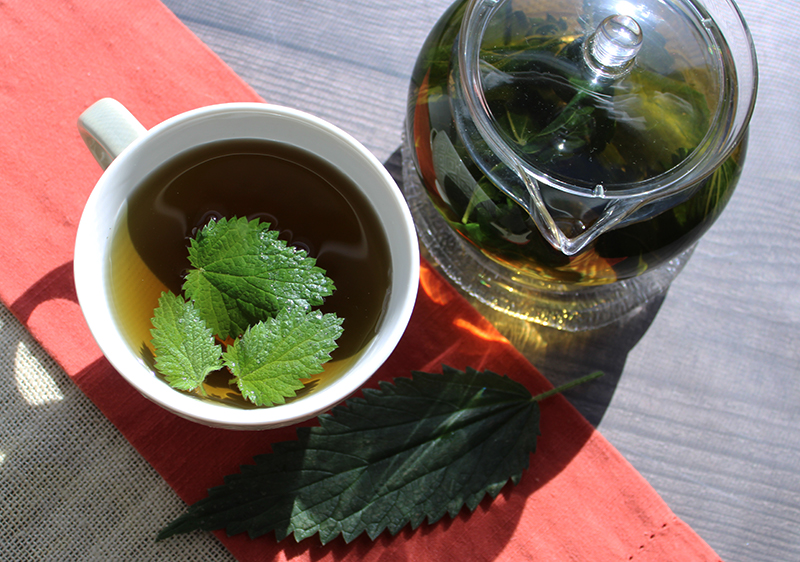
Virtue #3) Nettle for Respiratory and Allergy Support
Nettle extracts and tinctures are often advertised for their support to the upper respiratory system.
According to Culpeper's Complete Herbal written by the famous 16th-century herbalist Nicholas Culpeper, nettle "is a safe and sure medicine to open the lungs, which is the cause of wheezing and shortness of breath, and helps to expectorate phlegm." (*)
One of the rather recently identified virtues of stinging nettle is its use for seasonal hay fever or allergic rhinitis. That's because the stinging hairs contain histamine, serotonin and acetylcholine, identified in research to inhibit the pro-inflammatory pathways related to allergic rhinitis.
While these substances are in powders and teas, to a smaller extent, freeze-dried nettle leaf extracts were found to be the most condensed and useful for such purposes.
Nettles are additionally a blood and lymph cleanser. When your liver is not overburdened with toxins, seasonal allergy symptoms are often less likely to be a problem.
Freeze-dried powders or tablets are a recommended choice, but concentrated teas can likewise be consumed several weeks before allergy season to provide potential benefits.
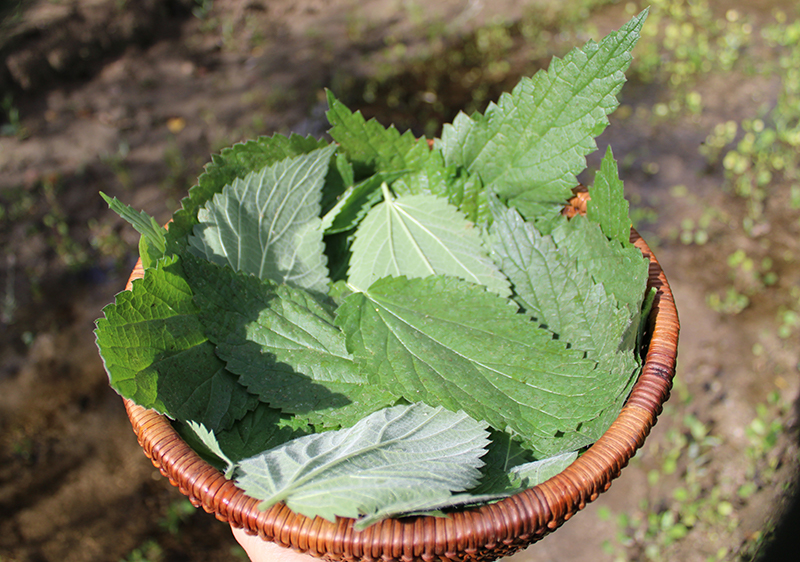
Virtue #4) Stinging Nettle for the Skin and Hair
Stinging nettle has long been utilized for nourishing the skin and hair. Being rich in many nutrients including the health-enhancing compounds silica and sulfur, nettle is often a top ingredient used in natural skin and hair care products.
Consuming steamed young nettle leaves and tea broths can support the healing of topical wounds and promote healthy clear skin via its cleansing blood purifying attributes.
Nettles can be used as a tea or poultice incorporated into homemade herbal creams and salves beneficial for various skin conditions.
Drinking nutritive nettle tea will not only help to strengthen the hair but also encourages its growth. Tea infusions applied topically, also make a healthful scalp and hair wash.
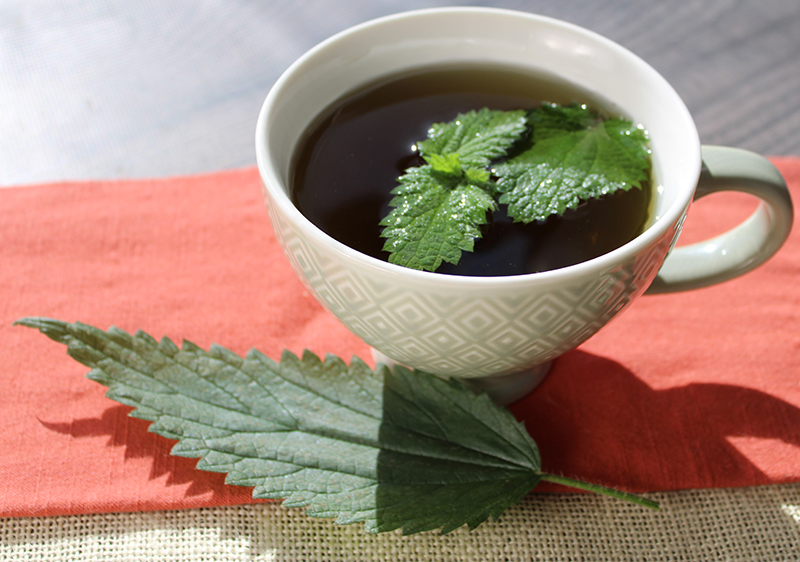
Virtue #5) Stinging Nettle Benefits for Women
Nettle is up there with dandelion as perhaps one of the best-known plant allies in many Western and European herbal communities. It is often top on the list of herbs for its benefits to female cycles from menses to menopause.
Teas offer a wealth of nutrients to the female system, like iron and calcium, and can be a great herb to add to a tonic tea formula a week or two before menstruation is expected.
Nettle teas are likewise also a recommended botanical ally for "women of the waning moon", providing menopausal support for lessening associated symptoms.
Supplementation on a daily basis can be useful for diminishing hot flashes, night sweats, fatigue and help to provide nutrients that may prevent bone loss.
Nettle has traditionally been valued for centuries as a nutritive herbal tea to use throughout pregnancy and is often found in pregnancy tea formulas.
It is also considered a galactagogue, a substance that can help increase the flow of breast milk in lactating mothers. For either of these uses, it is best to consult your physician before using nettle teas or extracts if pregnant or nursing.
Virtue #6) Stinging Nettle for the Urinary System
Nettle fosters a healthy urinary system with its mild diuretic actions and cleansing properties.
Dried nettle tea infusions are likewise very alkalizing to the body and urinary functions, assisting to decrease acidity and the removal of uric acid, especially beneficial for those with hyperuricemia, gout, metabolic acidosis and other disorders that may affect the health of the kidneys.
According to Rosemary Gladstar, "Because of the importance of the kidneys, nature is generous in her proportion of herbs beneficial to their functioning." Like dandelion greens, prolifically growing wild nettle (Urtica dioica) is one of these such herbs that are respected for such purposes.
Virtue #7) Nettle Root Benefits for Men
The roots of the nettle plant are also highly nutritive and phyto-therapeutic, especially for men and maintaining the health of the prostate.
Research has reported for many decades in both animal and human studies that nettle root has supportive potential for men with benign prostatic hyperplasia.
Available as a powdered extract, it is often
found
on the list of herbs, including saw palmetto and horsetail,
in dietary supplement formulas for the prostate gland.
One of the other well-known benefits of nettle root for men is its actions as a natural aromatase inhibitor. This means that it helps to "inhibit" the conversion of androgens (male hormones) into estrogens. That's why nettle root is commonly found in herbal preparations that include male herbs such as ginseng, ashwagandha, maca and pine pollen, to help encourage this effect.
Virtue #8) Versatility Virtues of Stinging Nettle
Throughout history, the stinging nettle plant has proven to be a very versatile species.
Use as a Food Source
Although the roots, stalks, stems and seeds can all be used therapeutically, the leaves are the most popular part to infuse in teas or tinctures.
Likewise, fresh young nettle leaves are also a type of wild leafy green vegetable that when steamed tastes very similar to spinach. There is also the Western herbalist tradition of making nettle pesto (some call it "nesto") using half basil and half fresh young nettle leaves.
In case you were wondering, the sting found in the prickly nettle hairs is deactivated when the plant is steeped, steamed, macerated, dried or prepared in an alcohol or vinegar solution.
Use as an Industrial Fiber
The very tough fibrous root stalks were once utilized as a type of industrial fiber, similar to hemp or flax, for making fabric, twine and rope. This use dates way back to the 18th century, over 300 years ago. (Source) It was in fact known to be used in German army uniforms in both World War I and II when cotton was a scarce commodity.
Use as a Permaculture Plant
Nettles make a great companion plant in permaculture design, known to benefit the growth of other herbs and vegetables as well as support the proliferation of beneficial insects.
It is very easy to grow your own nettle either from seeds, nettle cuttings or purchased nettle starts. Rudolph Steiner, who promoted the use of nettle teas, also encouraged its use as a biodynamic spray to increase vegetative growth and provide a natural insect repellent.
Precautions:
Consult a qualified healthcare practitioner before using nettle products, especially if you are pregnant, nursing, have a serious medical condition, asthma, allergies or taking prescribed medications.
Shop Related Products (About Affiliates & Amazon Associate Paid Links)
Affiliate Disclaimer: This section contains affiliate product links. If you make a purchase through our recommended links, we receive a small commission at no additional cost to you. Thanks for the support.
